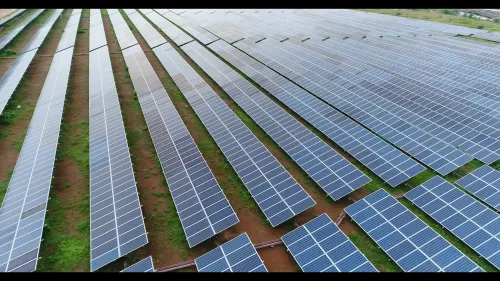Have the GFR Rules for Scientific Equipment Procurement Been Simplified?

Synopsis
Key Takeaways
- GFR simplification enhances procurement processes for scientific equipment.
- Increased purchase limits empower researchers and institutions.
- Reduces bureaucratic delays and fosters innovation.
- Applicable to various scientific departments and institutions.
- Supports the vision of a technology-driven Viksit Bharat.
New Delhi, June 7 (NationPress) In a significant move aimed at facilitating research, the General Finance Rules (GFR) have undergone simplification for the procurement of scientific equipment and consumables, as announced by Jitendra Singh, Union Minister of State (Independent Charge) for Science and Technology, on Saturday.
The GFRs serve as the foundational financial regulations for the government, detailing the processes for managing public finances. These rules are applicable to Central government ministries and departments, as well as autonomous bodies with their own approved financial guidelines, covering key areas such as budgeting, procurement, expenditure, and accounting.
In a post shared on the social media platform X, Singh remarked that this initiative will significantly boost the autonomy of emerging researchers.
“This is encouraging news and a pivotal breakthrough for young startups, innovators, and researchers: In a landmark step facilitating research activities, the GFR rules have been simplified for the procurement of scientific equipment and consumables,” Singh stated.
“This change will minimize delays while enhancing autonomy and flexibility for research institutions, empowering them to innovate at a faster pace,” he continued.
The Minister of State also commended Prime Minister Narendra Modi for this transformative reform, which aims to expedite the technology-driven journey of Viksit Bharat.
In an Office Memorandum dated June 5, it was authorized for Vice-Chancellors, directors of scientific organizations, and academic institutions to engage in non-Government e-Marketplace (GeM) procurement for scientific equipment and consumables.
This order is applicable exclusively to departments of Science and Technology, Biotechnology, Scientific and Industrial Research, Atomic Energy, Space, Earth Sciences, Defence Research and Development Organization, Indian Council of Agricultural Research (ICAR), along with its affiliated institutions and Universities; Health Research (DHR), including the Indian Council of Medical Research; and educational and research institutes conducting postgraduate or doctoral level courses or research under any Ministry or Department, as stated in the memorandum. With the simplified rules, the purchase limit for goods without a quotation has been raised from Rs. 1,00,000 to Rs. 2,00,000.
Additionally, the limit for the Purchase Committee on goods procurement has been enhanced to Rs. 2,00,000 and up to Rs. 25,00,000.
For Limited Tender Enquiry (LTE), the revised limit is set at Rs. 1 crore, while for Advertised Tender Enquiry, the new threshold is above Rs. 1 crore, as mentioned in the memorandum.
This amendment is expected to grant greater flexibility to scientific ministries for the import and purchase of essential research equipment.










